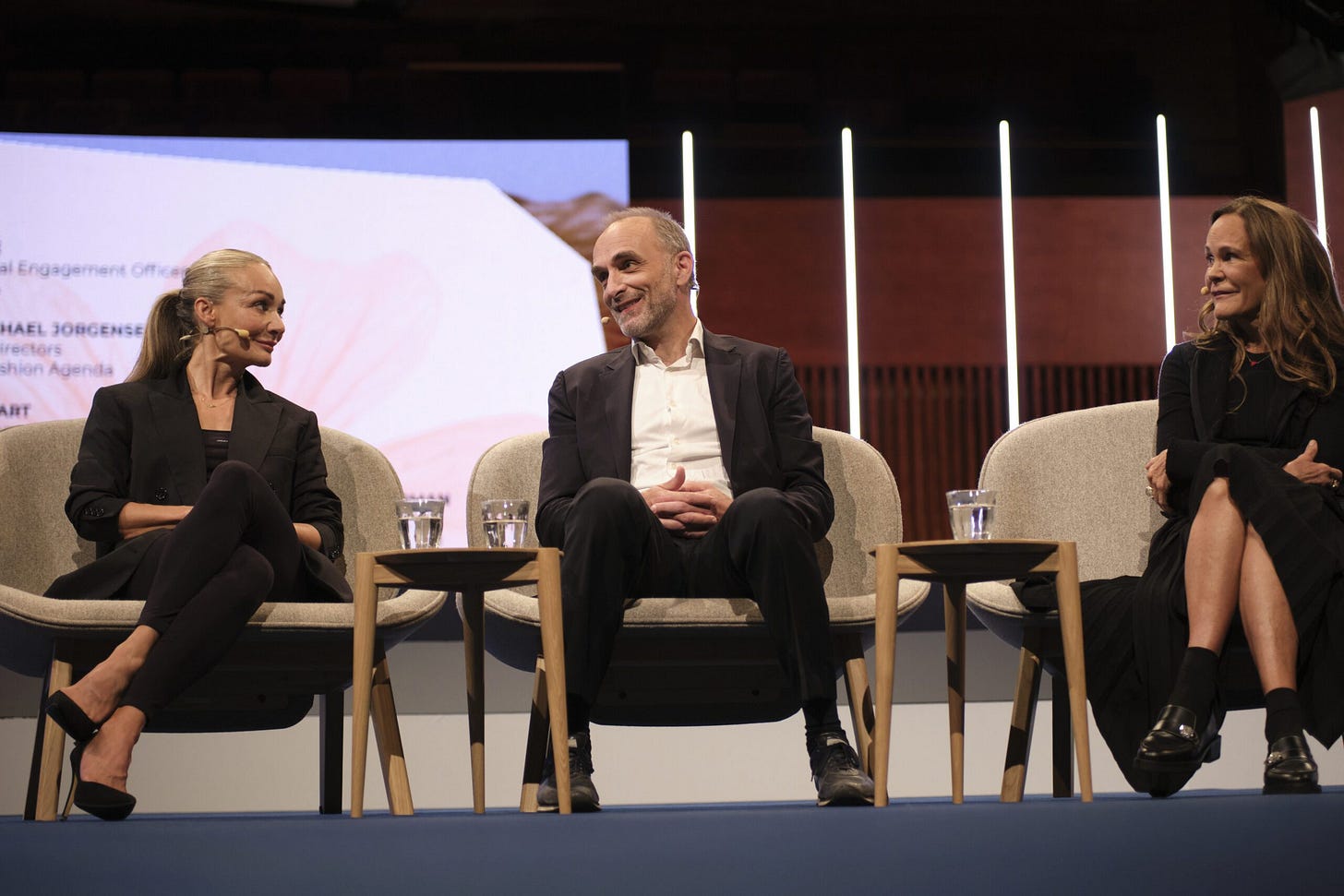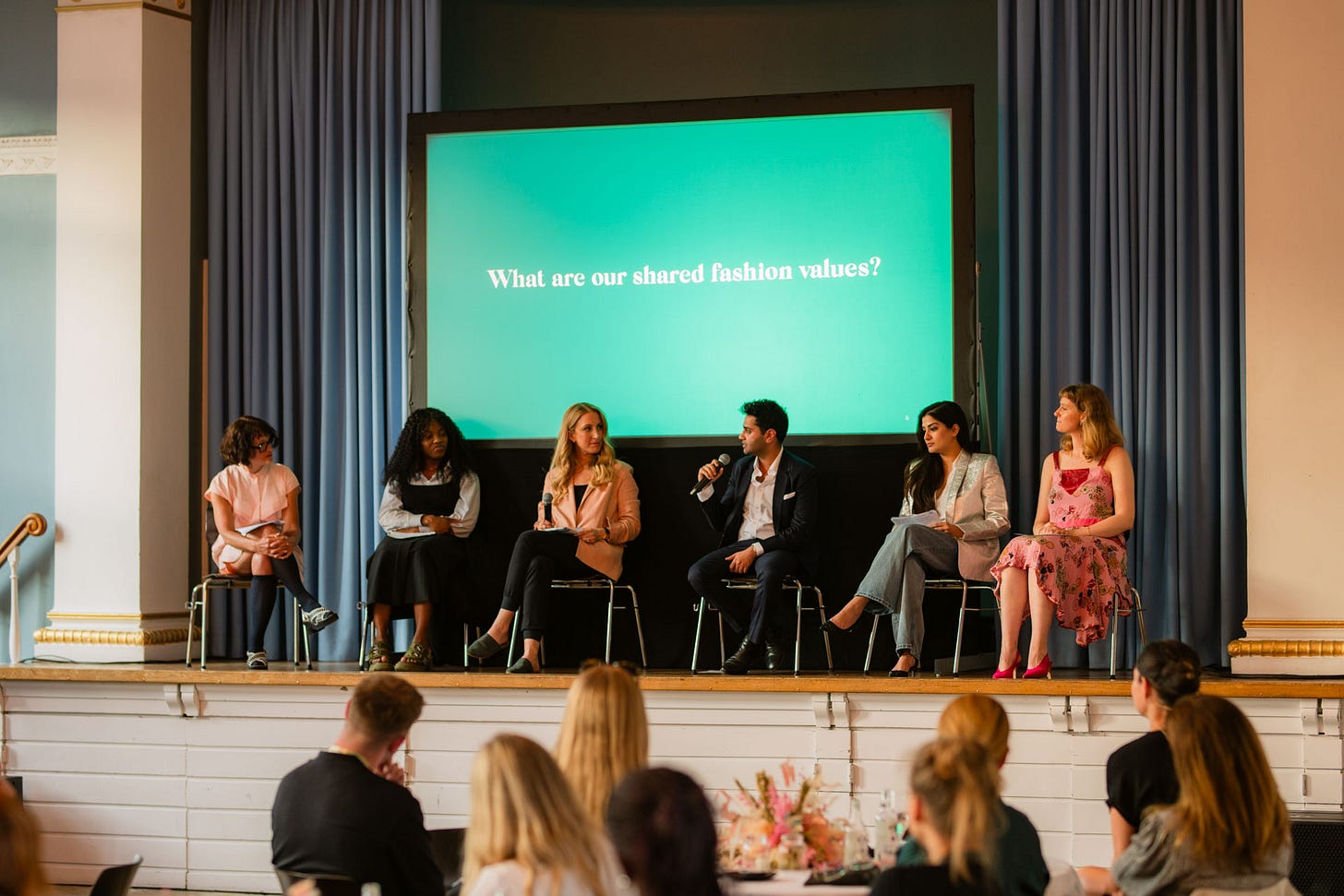Are you feeling uncomfortable enough?
Musings from the Global Fashion Summit, or why (and how) we need to push to a place of discomfort to actually effect change.

If there was one quote repeated throughout last week’s Global Fashion Summit in Copenhagen, it was this opener from Paul Polman: “If any of you are comfortable with what you are doing, you are not in the right space. If you are feeling a level of discomfort you might be moving closer to where you need to be.”
Indeed. Are we uncomfortable? Are we willing to be? Can we really push the envelope and not just pay lip service to it? What will that actually take and how do we get there?
As Sarah Kent highlights in her Business of Fashion wrap-up from the event: “The [fashion] sector’s efforts to actually tackle the issues remain largely stuck in pilot mode — or the province of marketing and PR efforts.”
And as Eva Kruse, who founded the Summit 15 years ago poignantly noted: “It wasn’t the idea that we would still be talking about the same things 15 years in. I’ll be brutally honest, I’m quite disappointed in all of us that we haven’t been able to push things forward.”
We all heard and really felt that note of disappointment, I think. It was raw. And yet the intention for change is there in the room. Indeed, for those who have been attending for as many years, it isn’t for lack of trying. Frustratingly so. But we’re not the ones who need convincing of course.
The obvious questions then are how we do the things that really move the dial, and perhaps more importantly, how we get it out of our own echo chamber to help us do so?
It was promising in many ways to see government regulation and the role of finance central to many discussions at the Summit as a result this year, both of which will ultimately be what shapes this agenda.
But for me, it was the increased presence of the topic of growth or volume (call it overproduction, oversupply, overconsumption, whatever you like), that was the most important - from a discussion I participated in on what our shared values should be with the Centre for Sustainable Fashion, to a closed roundtable I held in my UNEP capacity with the Global Fashion Agenda on the role of influence within this world, not to mention numerous hallway debates on the subject with all manner of different stakeholders.
Panellists centred it on stage too. As Vanessa Friedman, fashion director of The New York Times said: “We make too much stuff. I’m not just talking about overproduction, but special collections and pre-collections and Barbie collections. No one has room for that much stuff.”
And as Jules Lennon from the Ellen MacArthur Foundation, who launched the organisation’s Fashion Remodel project to scale circular business models (CBMs), asked very simply: “How can we make money without making more clothes?”
That was a bold but necessary call for decoupling in a world where CBMs currently drive little if no revenue for brands; something I heard time and time again from many other businesses on the ground during the conference struggling to gain both buy-in and investment to even attempt to do so in the current economic climate.
This focus and wider is key - we need to centre value creation, incentives and system structures to really drive change. Which brings us very quickly to a place that is uncomfortable because it fundamentally goes against the way things currently work. And yes, that discomfort is exactly what should make it the anchor to every discussion had in this space.
As Federica Marchionni, CEO at the Global Fashion Agenda said in her opening speech: “[We need to redefine] performance metrics and the growth paradigm…. Performance on the stock market should not be the sole measurement of business performance in the context of the climate crisis.”
Again, the question then is how do we break out of our echo chamber to do so? That is the only way we will ensure true progress in the next five years, let alone 15.
And for that, we’ve got to realise it starts with all of us in the room already. Change is in our hands, which is why I post this here on a Substack channel dedicated to how we do the work we do and trying to encourage more people into this space to join us...
“It’s a very simple question - do you care?” Polman stated. “Unlocking our own human awareness and consciousness is central to systems change.”
A few more detailed wrap-ups from the Global Fashion Summit it’s worth reading:
6 Key Takeaways From the 2024 Global Fashion Summit, Which Proved Urgent Action Is Still Needed, by Emily Chan for Vogue.com
Is Fashion Serious About Sustainability? by Sarah Kent for Business of Fashion
A Postcard From Global Fashion Summit: Are we Overcomplicating This? by Ruth Macgilp for Threadbare
And this Linkedin post from Yara van Heugten of Follow the Money





